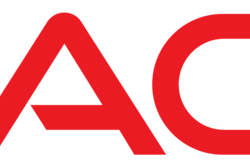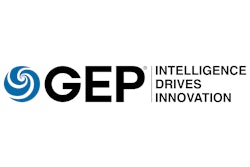
Part 1 of Blockchains: The Next Big Bang in Supply Chain can be found here.
The excitement around blockchains becoming the basic building block of tomorrow’s connected world is fast approaching and, according to some, it already arrived. A lot happened over the past few months since we set out to unlock the minds of some change agents behind the revolutionary concept of blockchains, which are expected to store an estimated 10 percent of the global gross domestic product (GDP) in its network over the next decade.
Blockchain-backed innovations are growing in leaps and bounds, spanning a multitude of real-world applications—from mining giants such as BHP Billiton using the blockchain solution for refining their supply chain processes by obtaining access to concurrent intelligence, to global tech powerhouse IBM using the concept to combat climate change for its clients, to central to banks like the one in China turning to blockchains to aid interbank payments and wipe out cash, to facilitating fair sharing of royalties in the music industry, to easing storage of health records. The list is endless!
So, after all the clamor, the question remains, “What’s in it for procurement?” How can the boundless potential of this simple, but profound innovation be used to unleash advancements in smart contracts, anti-counterfeiting, supply chain tracking, real-time intelligence, predictive analytics, and last, but not least, cheap and safe payment solutions? How can blind spots be removed, and how can the existing system be made leaner and safer? Are we eyeing the next big bang—the real transformation of supply chain as we know it?
Let’s look at some areas where blockchain technology is creating ripples. We can begin with the area of supply chain tracking. According to Provenance, a torch-bearer in making supply chain tracking efficient and transparent, creation and exchange of material things are the basic building blocks of our lives. However, this is hampered by inefficient supply chains, forgery, traceability issues and vast amounts of material being wasted. The firm seeks to use these new digital technologies to enable every physical product to come with Provenance, a seamless digital passport that empowers authenticity and traceability, thereby dodging exploitation through the product lifecycle.
Provenance believes that, in our hyper-connected and ever-evolving world, transparency is paramount and offers products supply chain stories, item level traceability and, in turn, enhances consumer-facing experiences. Provenance is focusing on an array of sectors, ranging from tracking tuna caught in the Indonesian Sea to upcycled designer bags.
The good news is that it is not alone in this fight against counterfeiting using blockchain platforms. For example, BlockVerify, a blockchain-based anti-counterfeit solution, aims to improve transparency in the supply chain in pharma and luxury segments. Everledger allows stakeholders to trace the authenticity, ownership and identity of luxury items, such as diamonds, by creating digital footprints of items on blockchain networks, thereby enabling companies and governments to regulate ethical supply chain routes.
Etherparty and Applied Blockchain provide effective platforms for smart contracts that track every stage of the procurement lifecycle, facilitate audits, track predefined budgets, evade malpractice and ensure invoice mapping. With the release of Etherplatform, a contract library that is expected to be an open-source platform, supply chain professionals are expected to salvage enough ammo to ensure smart contracts are in place. These types of smart contracts open a wide range of possibilities, including the provision of equal footing to small-scale vendors that will get access to lending, provided buyers are creditworthy, apart from other visible benefits, such as a reduction in overhead costs. Some, like Outlier Ventures, wish to seize the opportunity to bring buyers together to facilitate a consortium mode of collective buying using blockchains to enable bulk transactions using tamper-proof ledgers.
Currently, one-quarter of the cost of factoring and supply chain financing programs are related to the risk of fraudulent and multi-financed invoices. The company Fluent pioneers in creating a unique digital asset out of each invoice after it is approved and cryptographically signed by the buyer. Settlement of this invoice on the payment date is programmatic and happens instantly to whoever owns the invoice. Its focus includes real-time business-to-business (B2B) payments and supply chain financing, and providing a peer-to-peer working capital marketplace.
It doesn’t stop there—the fact that blockchains can potentially be used to predict future market movements based on past events is the icing on the cake. Having a decentralized predictions market is what Augur is working toward. What if this could be used to predict events and release dates on the supply side? What if payments can be automated based on the probability of an event happening? What if hedging can be mastered based on probabilities of an incident? The options are tangible and plenty!
Indeed, we live in exciting times. The very thought of what the future holds is exciting and makes you wonder if this is the answer to procurement’s future challenges. In short, blockchains have the capacity to disrupt the way supply chain and procurement presently functions. Are you and your business equipped to take procurement process efficiency to new shores? Are you ready to embrace a supply chain that is transparent, honest, fast and (of course) centered on cost savings before it’s too late to be ahead of the curve?
Part 1 of Blockchains: The Next Big Bang in Supply Chain can be found here.
Thomas Cherian leads the Professional Services team at GEP, providing solutions for key categories, such as management consulting, legal services, human resource services, financial services, travel, meetings and events, and fleet management. Currently serving as a category lead in the field of business services, Cherian has worked with more than 40 Fortune 500 clients across industries. For more interesting thinking on procurement, please visit the GEP Knowledge Bank.










